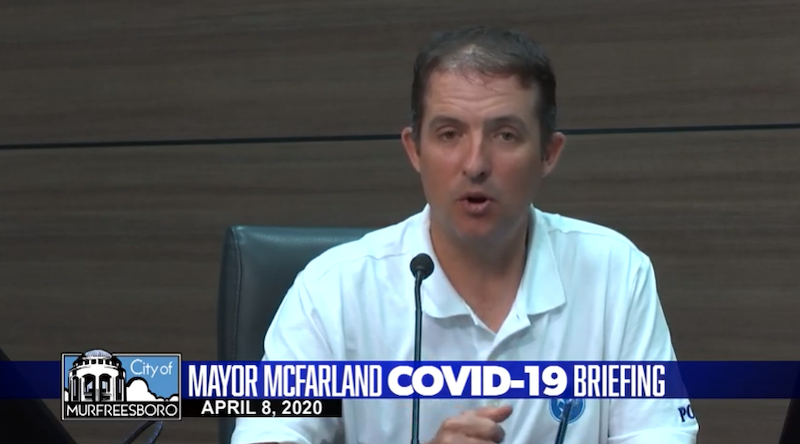One of the ripple effects of the pandemic is how quickly it has changed the way government officials communicate to constituents.
Many local leaders are routinely posting video updates to social media, with some opting for unscripted and personal approaches.
 YouTube CityOfMurfreesboro
YouTube CityOfMurfreesboroMurfreesboro Mayor Shane McFarland conducts COVID-19 video briefings.
That includes Murfreesboro Mayor Shane McFarland, who was receiving supportive text messages in the middle of recording one of his:
“Apparently I look pretty tired, so I need to do something about that,” he joked. “But I want you all to know how much I appreciate you texting and just saying thank you for what you’re doing. It’s like when you run a marathon and you have your name on your shirt — just hearing your name and ‘Good job, keep going.’”
Tennessee’s governor and Nashville’s mayor are also now much more visible than they had been. They’re holding briefings most weekdays and answering far more questions, off the cuff, from journalists.
When it comes to conducting government meetings, experiences are mixed.
The Tennessee Coalition for Open Government has noted instances where leaders didn’t adhere to the governor’s executive order on meeting transparency. That includes a private conference call among Dickson County officials and a vote taken by email by the state Registry of Election Finance.
TCOG, which lobbies for openness, notes the Tennessee County Services Association and the Tennessee Municipal League urged transparency in a recent joint letter.
On Tuesday, Nashville’s 40-member Metro Council learned what it’s like to conduct a meeting by conference call.
It wasn’t always smooth. Taking roll call to check who was attending from home took more than six minutes, and the meeting was occasionally hampered by audio and procedure glitches, as well as many apologies as members muted and unmuted their microphones.
But at under four hours, Tuesday’s Metro Council meeting was somewhat shorter than usual, as the council deferred numerous proposals.

